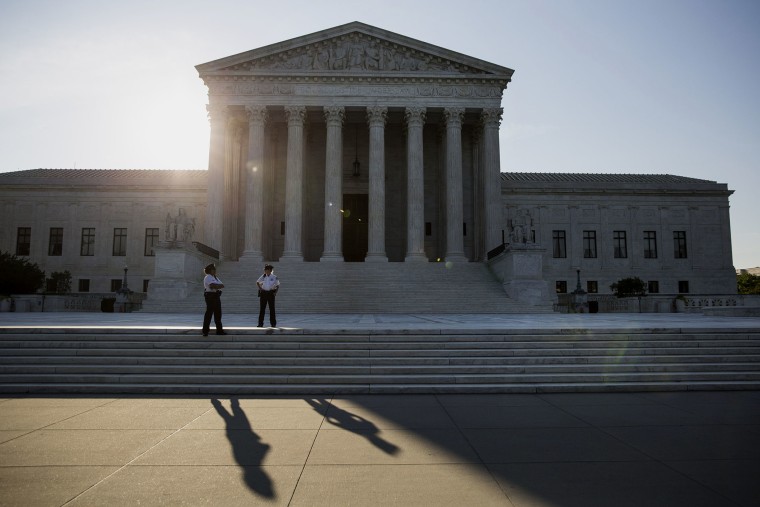The decision concludes that parts of the law are ambiguous, at least when read without attention to the law’s overall purpose. Ordinarily, when a law is ambiguous, the Court defers to federal agency interpretations of the law. Thus, while the Obama administration (specifically, the IRS) interpreted the law to extend tax credits that help millions of people pay for health insurance to residents of all 50 states, under the ordinary rule, a future administration could interpret the law differently to cut off those credits in many states. Roberts’s opinion forecloses this possibility. Whether tax credits are available in all 50 states is “a question of deep ‘economic and political significance’ that is central to” the law’s “statutory scheme.” Thus, “had Congress wished to assign that question to an agency, it surely would have done so expressly,” and “[i]t is especially unlikely that Congress would have delegated this decision to the IRS, which has no expertise in crafting health insurance policy of this sort.”
'Obamacare' wins big at the Supreme Court
If you're one of the millions of Americans whose health security was at risk in King v. Burwell, you can now exhale.

If you're one of the millions of Americans whose health security was at risk in King v. Burwell, you can now exhale.
This post will be updated shortly (and repeatedly).
First Update: The full ruling is available online here.
Second Update: Justices Scalia, Alito, and Thomas were in the minority. Scalia, apparently annoyed that both Republican challenges to the Affordable Care Act have now failed, wrote in the dissent that he's inclined to start calling the law "SCOTUScare."
Third Update: Note, Roberts wrote the ruling in June 2012 -- exactly three years ago tomorrow, in fact -- that upheld the constitutionality of the health care reform law. In today's decision, the Chief Justice noted, accurately, "Congress passed the Affordable Care Act to improve health insurance markets, not to destroy them."
Fourth Update: In the majority ruling, Roberts acknowledges the ambiguity of the offending phrase, but wrote, "In this instance, the context and structure of the Act compel us to depart from what would otherwise be the most natural reading of the pertinent statutory phrase." This is, of course, how American jurisprudence is supposed to work -- the idea of gutting a massive law by examining half a sentence out of context is absurd.
Fifth Update: If you're brand new to this case, and have no idea what all the fuss is about, check out some of our earlier reporting, including this piece from when the case was argued in March. Long story short: Republicans hoped to use an ambiguous, five-word phrase in the statute to take "Obamacare" subsidies away from at least 6 million people, making insurance unaffordable to millions of families and encouraging the so-called "death spiral." Today, that effort failed.
Sixth Update: It's easy to see today's ruling as a major victory for President Obama, Democrats, hospitals, families, health care advocates, medical professionals, and people who care about how American law works, but don't underestimate the relief many Republicans are feeling right now. After all, they had no idea what to do in the event of a far-right "win" at the high court. More on that a little later today.
Seventh Update: While the dust settles, here's a question to kick around: why did the court even agree to hear this case? The D.C. Circuit was poised to reach the same conclusion the justices did today, so there would have been no split among the circuits. At least four justices had to agree to take up the case in the first place, and right now, I'd love to know which ones did so.Eighth Update: Ian Millheiser raised a good point about the scope of the decision:
Why does this matter? Because it leaves the ACA on stronger, long-term footing. As the court majority put it, changing the law would require Congress to pass new language. In other words, if President Obama is succeeded by a Republican, he or she will not have the authority to simply end the subsidies.